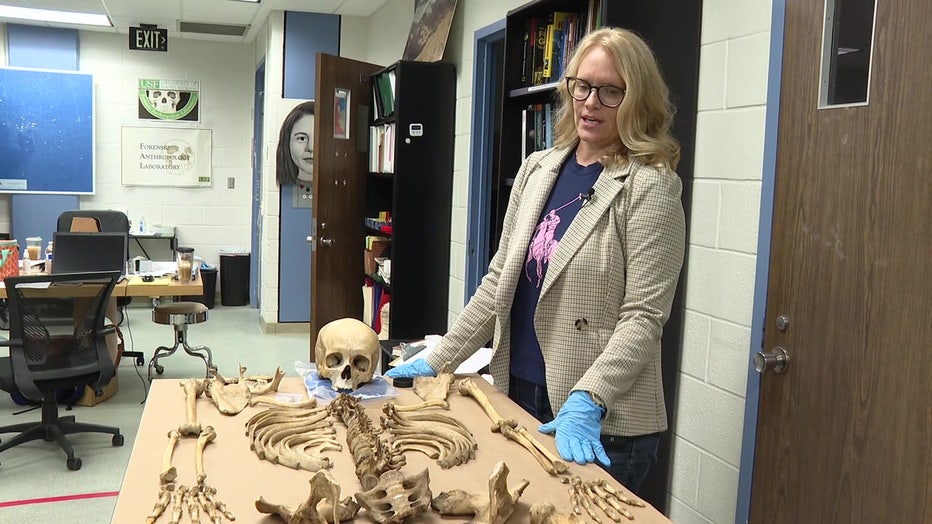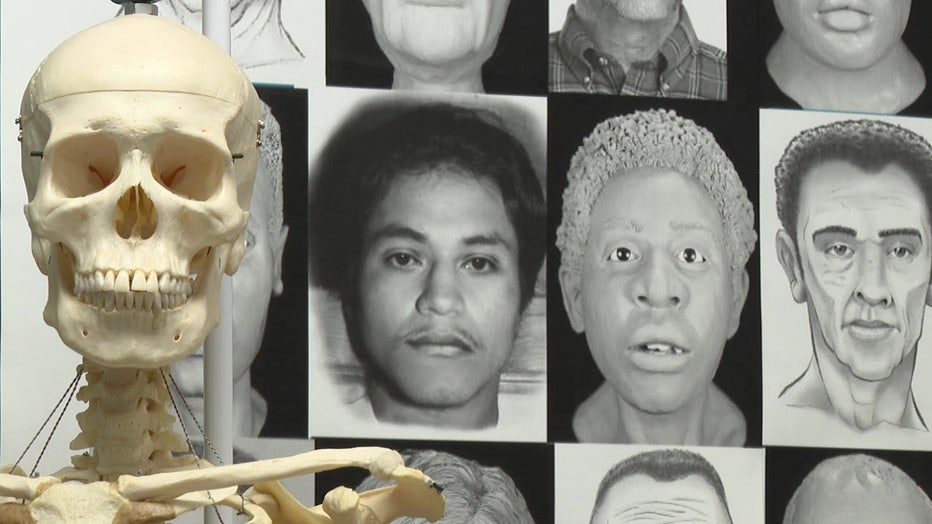USF professor known for cracking cases to use $1M grant to solve missing persons cases in another state
TAMPA, Fla. - USF Professor Erin Kimmerle uses bones to solve the mysteries of people who went missing years ago. In many cases, families were left with holes in their hearts.
"What would I do if it was my child that was missing all these years and time doesn’t change that if someone you love has disappeared," said Kimmerle, who over more than a decade has put her forensic anthropology team from USF on the national map for solving many cases.
They helped crack the horrendous case of the Dozier reform school in North Florida. They unearthed the graves of dozens of boys who died at the school years ago amid widespread abuse, according to authorities.
RELATED: Researcher reflects on investigation into abuse at Dozier School
But Kimmerle hasn’t stopped digging. From an unmarked grave, she can exhume a skull and scientifically recreate a facsimile of what the person looked like when they were alive.

"We create a facial reconstruction and the bony architecture of the face," Kimmerle explained.
Using various computer software, she can make an image of the person for family or friends to hopefully recognize so that the remains can be returned and possibly be used in a police investigation.
Kimmerle just received a $1 million grant to take her expertise to the Commonwealth of Pennsylvania to try and solve a backlog of missing persons there. She says the geography doesn’t matter.
READ: USF's Erin Kimmerle testing human remains that may belong to Amelia Earhart
"Whether it’s a state boys’ school or an international human rights case, the effect of the family doesn’t change," she stated.

Among a dozen teams to get grants for the work, USF is the only university. She will also use the newest DNA technology to help identify remains. A team of USF graduate students will go with her.
Their first trip there starting this Sunday will last about a week. More trips will follow for the next three years.
"The students who graduate here have a level of experience and practice that you just don’t see anywhere else," said Kimmerle, who continues to learn more about how bones can yield answers for families who’ve had no idea what happened to missing loved ones.
SIGN UP: Click here to sign up for the FOX 13 daily newsletter

